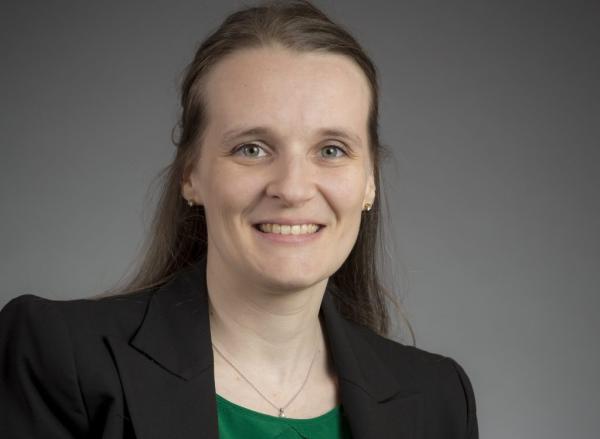
CCNY biomedical engineer Alessandra Carriero, whose research could transform treatment strategies promoting bone health, has received more than $1.1 million in grant support from the HFSP.
Alessandra Carriero, assistant professor of biomedical engineering in The City College of New York’s Grove School of Engineering, is the recipient of more than $1.1 million from the Human Frontier Science Program (HFSP) -- one of 28 grants awarded for top class research after a rigorous year-long global selection process. The funding will support her study on the role of bone cellular and sub-cellular porosity in calcium homeostasis.
Carriero heads the City College arm of a three-year international grant awarded from the HFSP, which promotes new intercontinental collaborations in risky, cutting-edge, interdisciplinary research focused on elucidating the complex mechanisms of living organisms. The research program is highly competitive and only the top 4% of all HFSP grant applications were funded this year.
“The grant will allow us to investigate the role of the bone cellular and sub-cellular porosity network on its mineral transport. This knowledge may revolutionize the way we conceive bone physiology and eventually transform treatment strategies promoting bone health.”
Carriero’s collaborators include Kathryn Grandfield at Canada’s MacMaster University and Aurélien Gourrier at CNRS, Université Grenoble Alpes in France.
Grandfield is using a plasma focused-ion beam microscope to identify the cell network and the smaller pore network. These images will then be used by Carriero’s team at CCNY to develop a computational model of fluid flow within bone to determine whether the osteocyte network alone can account for the massive change in bone minerals, or whether a subcellular network plays a role in this process. In France, Gourrier will apply artificial intelligence and machine learning to compare local bone architecture acquired at high resolution with electron microscope by the Grandfield’s team to large portions of bone collected with optical microscope by his group at Grenoble. They will analyze the porosity network characteristics at its multiscale and determine the parameters to consider as a function of (de)mineralization.
“Our collaborative work will provide a level of understanding of fluid transport in bone never achieved before, critical for calcium exchange and homeostasis,” said Carriero. “Our research may change paradigms of how we currently know bone functions.”
About the City College of New York
Since 1847, The City College of New York has provided a high-quality and affordable education to generations of New Yorkers in a wide variety of disciplines. CCNY embraces its position at the forefront of social change. It is ranked #1 by the Harvard-based Opportunity Insights out of 369 selective public colleges in the United States on the overall mobility index. This measure reflects both access and outcomes, representing the likelihood that a student at CCNY can move up two or more income quintiles. In addition, the Center for World University Rankings places CCNY in the top 1.8% of universities worldwide in terms of academic excellence. Labor analytics firm Emsi puts at $1.9 billion CCNY’s annual economic impact on the regional economy (5 boroughs and 5 adjacent counties) and quantifies the “for dollar” return on investment to students, taxpayers and society. At City College, more than 16,000 students pursue undergraduate and graduate degrees in eight schools and divisions, driven by significant funded research, creativity and scholarship. CCNY is as diverse, dynamic and visionary as New York City itself. View CCNY Media Kit.
Jay Mwamba
p: 212.650.7580
e:
jmwamba@ccny.cuny.edu
View CCNY Media Kit.